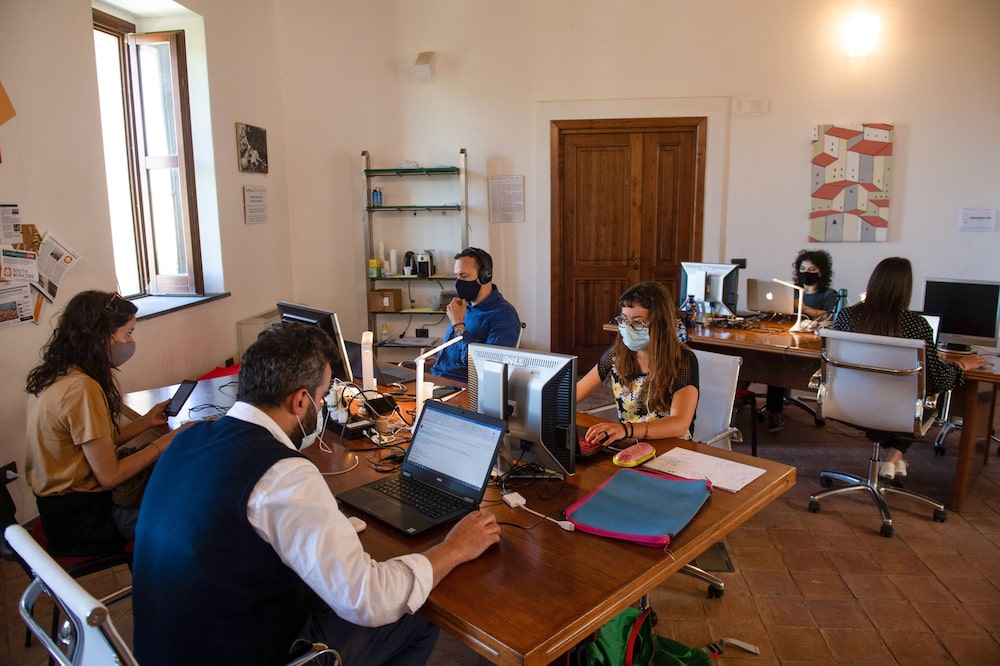Bogotá — Mexico has for several years been a key target for Latin American startups looking to expand into new markets, serving as a springboard for international business growth, and in Mexico City alone, foreign entrepreneurs created an estimated 9,800 jobs and raised $1.72 billion in 2021, according to an Endeavor Review report on the phenomenon of migration in entrepreneurship.
“In fact, out of 204 technology companies that have successfully raised capital, 31% of the founders identified themselves as foreign,” the report states.
In the first three months of 2022, Mexico reported an estimated 44 venture capital deals with a total value of $784 million, an increase of 4.76% on the same period of 2021, according to Transactional Track Record figures.
User authentication startup Truora recently raised $15 million in a Series A round to expand in Mexico, while Colombian startup Leal, a loyalty and rewards fintech, has announced it is entering Mexico, where it is seeking to create 1,000 partnerships with retailers, and both news items are signs of Mexico’s vibrancy as destination for startups’ expansion, and which is backed up by a a recent report by Endeavor, Google, Mastercard and General Atlantic, which pinpoints Mexico, Brazil and Colombia as the most favorable countries for the expansion of unicorns in the region.

Citing 2021 figures, the report states that, of 271 companies that expanded during the year, 145 did so in Mexico, followed by Brazil and Colombia.
The Mexican market has been poised for several years now to become a vibrant ecosystem for startups and today is home to several of the largest unicorns in the region, and the time lapse to reach unicorn-grade value has narrowed in Mexico, unlike in Colombia, where the only one that has entered that club is Rappi.
Proof of this is that, while it took four years for used car sales platform Kavak to reach that status, it took Clara, a startup that offers companies expenditure-management, just eight months.
Mexico’s Pros and Cons
In an interview with Bloomberg Linea, Juana Ramírez, president of the Mexican Entrepreneurs’ Association (ASEM), said that Mexico “is on an accelerated path that had already begun even before the pandemic”, highlighting its connectivity indices, its proximity to the U.S. market, and the common language with Hispanic markets, among other factors.
“We are the neighbor of the United States, which attracts investment, we have a gigantic opportunity to replace the Chinese maquila, and it is a country with greater connectivity than other countries in the continent,” Ramírez said.
However, she pointed out that only 37% of companies in the country have access to some type of financing, either from banks or investors, while there are also challenges for social impact enterprises, those founded by women, or those that serve other more traditional sectors of the economy.
According to the Endeavor Review report, in addition to capital, other obstacles for foreign entrepreneurs in Mexico City have to do with access to talent, which was the main challenge for 42% of those consulted.
Likewise, 10% of entrepreneurs surveyed said that access to clients is their main obstacle, while 14% stated that it is regulation, evident in processes as simple as opening a bank account, “a task that can take months”.
Linked to the above, “a common challenge that is unique to foreign entrepreneurs is the lack of contacts, which makes it difficult not only to procure clients, but also to get the business off the ground”, the report added.
Entrepreneurial Vision
Truora’s CPO Maite Muñiz said in an interview with Bloomberg Línea that one of the keys to startups landing in Mexico is to have previously immersed themselves in that market in order to understand everything, from how it communicates to who it has to sell to.
“This happens in any country, but really to get to know them, see how they dress, what they do in their free time, what kind of information they collect, what kind of companies they trust, how they choose suppliers, etc., that seems very important to me, because it changes a lot from country to country,” she said.
She said that Mexico is still a very traditional market in terms of choosing suppliers, while “Colombia is much more permeated by startups to a certain extent, and they are more informal when it comes to doing business”.

“The other point to consider is how and with whom are are you going to communicate with them. So sometimes it helps to have face-to-face meetings, decide who from your team you are going to have there, how you are going to ‘tropicalize’ your products for that market in some way,” she said.
Likewise, an important point is to link to a local team, something that “many companies will tell you that you don’t need, but it is definitely a plus”, she added. “Having one or two people who dominate the industry, who dominate the environment, so that clients can relate to them and feel that they are being looked after by someone local helps a lot”.
She also said networking is key, and the importance of attending industry events to get to know more people in the industry and make the landing a little easier.
Sebastián Noguera, co-founder of Colombian proptech Habi, told Bloomberg Línea that one of the windows of opportunity to build that company in Mexico “was right now, and probably not in a year or two, because the market is moving fast”.
“There are players coming, and somehow we understood that we had a window of opportunity with what we have built in Colombia, with how similar both markets are, with the safety problems, the problems of informality in the real estate sector, and we believe that if we come with our value proposition, we can have a huge impact, and that is why we decided to take the leap,” he said.
Colombian Startups in Mexico
Daniel Blandon, managing partner of venture capital fund Simma Capital, told Bloomberg Línea that expansion helps startups “increase their visibility and appetite among foreign investors for future funding, and mitigates country-specific risks”.
“Cases that have been successful in their expansion are companies like Rappi, Melonn and Ubits, and which have managed to grow faster and obtain more funding once they opened in other countries,” he said.
For his part, Carlos Felipe Gutiérrez, an executive at the same fund, said that expansion always brings challenges, ranging from how to adapt to new cultures, to legislation and greater responsibility for leaders, but the advantages - such as diversification, a larger market, economies of scale and attracting foreign investment - “far outweigh the risks”.
Vanessa Bello, associate director of scouting at Wayra Hispam, says the biggest advantage for Colombian startups landing in the Mexican market is that they reach an economy that “is 40% larger in terms of population, and where close to 80% of people live in urban areas”.
“The Mexican market for almost all segments/verticals is at least twice the size of Colombia. At the same time, there are incentives and agencies for the development of bilateral trade agreements that help foreign startups to scale in that market,” she said.
However, she added, businesses “face some cultural barriers. For example, in order to enter Mexico, companies must have operating expenses for 18 months. This is because, in terms of human resources, salaries in Mexico are at least 20% higher than in Colombia.





